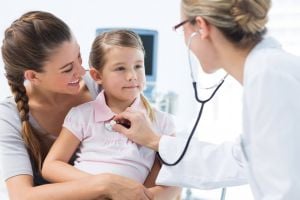MERS occurrence in Jeddah and Riyadh
Last activity 10 May 2014 by gonzrule
4038 Views
22 replies
Subscribe to the topic
Post new topic
I have received a message (just this morning) from a friend of mine who works in Jeddah as a nurse, where there have been fifteen cases of new fatality including one doctor and one nurse in a neighboring hospital there. Where he is working, there have been confirmed new cases as well. As precautionary preventive measures, they have been required to wear N95 masks at all times.
Based on the news from WHO as of 14th April 2014, there are cases in Riyadh as well. Read the link below:
http://www.who.int/csr/don/2014_04_14_mers/en/
I am not trying to scare people here. The disease is asymptomatic in the few days of acquiring it, and later on signs and symptoms start showing up when the state of health becomes really bad. To prevent the disease transmission, avoid the crowd for now. Be vigilant.
In addition to avoiding the crowd to prevent the transmission, maintaing good hygiene and enhancing the body's immune system are possible methods to protect you from the corona virus. The world has been alerted after the recent death of a Filipino paramedic in UAE from the viral infection, then positive exposure of his colleagues of whom one of them have travelled to the Philippines. All of the family members were put to quarantine, though symptomless, extreme precautionary measures have been made by the Phil. health authorities. Let's all hope and pray that a vaccine could be developed soon to combat this killer virus, inshaAllah.
where there have been fifteen cases of new fatality including one doctor and one nurse in a neighboring hospital there
CORRECTION: fifteen cases, not fatalities. two fatalities.
gonzrule wrote:I have received a message (just this morning) from a friend of mine who works in Jeddah as a nurse, where there have been fifteen cases of new fatality including one doctor and one nurse in a neighboring hospital there. Where he is working, there have been confirmed new cases as well. As precautionary preventive measures, they have been required to wear N95 masks at all times.
Based on the news from WHO as of 14th April 2014, there are cases in Riyadh as well. Read the link below:
http://www.who.int/csr/don/2014_04_14_mers/en/
I am not trying to scare people here. The disease is asymptomatic in the few days of acquiring it, and later on signs and symptoms start showing up when the state of health becomes really bad. To prevent the disease transmission, avoid the crowd for now. Be vigilant.
Thanks gonzrule for your concern and awareness ....and for spreading the news
I was relaying a message from a friend of mine in Jeddah, and I did check the veracity of his claim by looking up on the internet a tracker of reported MERS cases, and I came across a website (link below) so you can all see updates constantly.
http://www.flutrackers.com/forum/showth … p?t=205075
If you scan through the list of the 2014 cases, most of them occur in Jeddah and Riyadh, and fatalities have now gone up to over 20 in total since the beginning of the year.
MERS-CoV is in the US! Sadly, another healthcare worker from the KSA  . Everyone should be vigilant about the situation especially my colleagues. Please, please, take extreme precautionary measures. InshaAllah vaccine and cure will be developed soon. Take care everyone!
. Everyone should be vigilant about the situation especially my colleagues. Please, please, take extreme precautionary measures. InshaAllah vaccine and cure will be developed soon. Take care everyone!
http://www.usatoday.com/story/news/nati … 25731648=1
I am still unsure about how the disease is transmitted, whether it is airborne or by droplet spray. It seems to me that the latter is the mode of transmission, as the spread of the disease occurs mostly to people at a close proximity.
Correct me if I'm wrong. The difference between the two is that by airborne transmission, the carrier (person suspected or infected) can infect another person as far as 20 feet away, because the virus/bacteria floats in the air. By droplet spray, a carrier can infect another person as far as 3 to 5 feet away, and that is by sneezing or coughing.
After reading news and updates, one can assume that the transmission of the disease has been from person to another person whom they might have had close human contact, such as among those living under the same roof or those working in the health care setting.
Another thing I've noticed is that most of the fatal cases are prevalent among those of none-reproductive age group (above 45 years old), while those who belong to that age category and the younger age group have been lucky so far. That being said, I guess an enhanced immune system increases one's likelihood of surviving the infection.
The ways to improve the immune system is by ensuring an adequate intake of Vitamin C (plus Vitamin E), proteins, water and of course by getting enough rest.
gonzrule wrote:After reading news and updates, one can assume at the transmission of the disease has been from person to another person whom they might have had close human contact, such as among those living under the same roof or those working in the health care setting.
Another thing I've noticed is that most of the fatal cases are prevalent among those of none-reproductive age group (above 45 years old), while those who belong to that age category and the younger age group have been lucky so far. That being said, I guess an enhanced immune system increases one's likelihood of surviving the infection.
The ways to improve the immune system is by ensuring an adequate intake of Vitamin C (plus Vitamin E), proteins, water and of course by getting enough rest.
MERS-CoV has not been previously identified in humans. WHO and CDC have very limited information on transmission, severity and clinical impact. They are still trying to understand the risks of this virus, including the source, how it spreads, and how infections might be prevented. But one thing's for sure, the infection can be spread from one person to another by close contact; and that reported cases are secondary cases, meaning that they are considered to have acquired the infection from another case through human-to-human transmission. We just dont know whether the transmission was by airborne, droplet or even oral-fecal (as patients exhibited GI symptoms ie. diarrhea and possibility that the host is an animal). The point is we really just have to follow strict standard precautions and isolation techniques to somehow contained the virus and minimize or if possible eliminate the risk of transmission.
I have to disagree with you about your opinion on the prevalence of the cases among non-reproductive age group. What about the middle-aged men? It has been reported that most of the new infections involved persons more than 50 years old and suffering from other diseases such as chronic heart problems, hypertension and diabetes. And there are reported cases from elderly people too, so it could be linked that people who are most likely to get infected are those with compromised immune system. So yes, boosting your immunity could possibly help from getting infected.
You were right about the ways to improve our immune system but I suggest to omit Vitamin E as it might increase the risk of bleeding in people taking anticoagulant or antiplatelet medicines, such as warfarin (Coumadin). Vitamin C is sufficient enough as it also acts as an antioxidant. In addition, taking Multivitamins + Zinc supplements and eating a lot of vegetables and fruits will surely boost your immunity. Stay healthy!
indeed the best way is to have a proper hygiene.. boost your immune system.. taking vitamin C with Zinc is a better idea! as for me i am taking calcium with zinc as i have a lower level of calcium. and i eat fruits like orange and other fruits with a good source of C vitamins.
Raffy, rich source of Vitamin C is avocado and guava.
Vitamin C is rather unstable. Water alters the chemical properties of Vitamin C, and constant stirring of fluid (added with Vit. C) will alter its properties. Vitamin C in itself is has no anti-oxidant properties. The only time it possesses anti-oxidant properties is when it works together with Vitamin E. That is the reason it is always advisable to take Vit. E with Vit. C.
You see, free radicals lack electrons in its outer valence.
WOW! WE'RE TALKING CHEMISTRY HERE! 
Their lack of electron in its outer valence makes them very unstable and disruptive. Vitamin E comes to the rescue by donating one electron to the free radical to stabilize that free radical. But this process causes Vit. E to lose one electron in its outer valence, making it in turn unstable. That is when Vitamin C comes to the rescue and becomes the big hero. Vitamin C donates to Vitamin E an electron to stabilize it. Vitamin C does not become unstable in this process because it has so much electrons it has more to give. - lol 
By the way, I was talking about the prevalence of fatalities and its distribution among the different age groups. I thought that the fatalities were more prevalent among those who were above the reproductive age group. Please look into it. That is so, while morbidity on the other hand is distributed among all the age groups, though not equally. Based on that observation, I have a reason to believe that anyone with a weakened state of health is more susceptible to acquiring the disease.
Lastly, I've read news that MERS originated from a strain of flu affecting camels. Could that be one reason MERS is so persistent in the Middle East because of weather condition?
I would like to know the signs and symptoms of those people who had suffered from MERS. The gastro-intestinal disturbance is rather new to me, although it is likely as some flu strains can cause such manifestation.
Raffy, rich source of Vitamin C is avocado and guava.
gonzrule, avocados are not rich sources of vitamin C, in fact, as a vitamin C source, they are very poor, containing only about 5% of the vitamin C in guavas, per 100 grams.
Best sources of vitamin C are:
guava
peppers, sweet and hot
dark green leafy vegetables
broccoli
cauliflower
kiwi
citrus fruits
berries
I thought that the fatalities were more prevalent among those who were above the reproductive age group.
Is there a "reproductive age" for males? Males are fertile throughout their life span, barring any medical conditions. What you mean to say is that fatalities are more prevalent among the elderly, generally, people over 50-60 years old, and also among people with weak or compromised immune systems.
gonzrule wrote:I would like to know the signs and symptoms of those people who had suffered from MERS. The gastro-intestinal disturbance is rather new to me, although it is likely as some flu strains can cause such manifestation.
http://www.who.int/csr/disease/coronavi … 140424.pdfhttp://www.cdc.gov/CORONAVIRUS/MERS/INDEX.HTML
gonzrule wrote:Vitamin C in itself is has no anti-oxidant properties. The only time it possesses anti-oxidant properties is when it works together with Vitamin E. That is the reason it is always advisable to take Vit. E with Vit. C.
I've never heard of this before, can I have your reliable source please? There is little clinical research showing that vitamin E supplements are beneficial. Most clinical trials from the past few years have yielded negative or inconclusive results. In fact, the evidence is growing stronger that vitamin E supplements might actually be harmful in some circumstances - its anti-coagulant properties and increased risk of developing prostate cancer in men. It's better to get your vitamin E from foods. Nuts, seeds, vegetable oils, whole grains and leafy greens supply the most vitamin E. Broccoli, tomato sauce, red peppers, carrots, and some fish are also good sources.
Trapezius wrote:I thought that the fatalities were more prevalent among those who were above the reproductive age group.
Is there a "reproductive age" for males? Males are fertile throughout their life span, barring any medical conditions. What you mean to say is that fatalities are more prevalent among the elderly, generally, people over 50-60 years old, and also among people with weak or compromised immune systems.
I agree with Trapezius. That's what Im pointing out.
Trapezius wrote:Raffy, rich source of Vitamin C is avocado and guava.
gonzrule, avocados are not rich sources of vitamin C, in fact, as a vitamin C source, they are very poor, containing only about 5% of the vitamin C in guavas, per 100 grams.I thought that the fatalities were more prevalent among those who were above the reproductive age group.
Is there a "reproductive age" for males? Males are fertile throughout their life span, barring any medical conditions. What you mean to say is that fatalities are more prevalent among the elderly, generally, people over 50-60 years old, and also among people with weak or compromised immune systems.
I'm quite positive Avocado is rich in Vit. C. I'm not saying it has the highest content, but it is in fact a rich source. Any references online are not always complete and to some degree applicable to all. In other countries, there are claims about certain fruits or vegetables being "miraculous" source of nutrition, which people come to believe, as claims are backed up by studies of those in the medical field.
But you do make a point. 
For foods high in Vit. C, there is a link below for good reference:
http://www.healthaliciousness.com/artic … amin-C.php
On the other hand, the reproductive age group I was referring to pertains to the age of women to safely bear a child (or twins) which is 18 to 40 (or 45) years old, but that is only for the age. Immunity-wise, both men and women become more susceptible to diseases as they grow older.
Lina, that's what I've come to know at school in Nutrition (subject) in 2005.  The application of electrons and valence is from high school in 2000.
The application of electrons and valence is from high school in 2000. 
A lot of new discoveries and update surely have been made.
gonzrule wrote:Lina, that's what I've come to know at school in Nutrition (subject) in 2005.
The application of electrons and valence is from high school in 2000.

A lot of new discoveries and update surely have been made.
I understand, healthcare is evolving that's why we need to be aware of the latest trends and issues. But for the record, it's not really necessary to take vitamin C with Vitamin E in order to achieve its greatest effect, infact vitamin C will work well with Zinc. However, for possible prevention of UV-induced damage, Vitamin C should be combined with supplemental Vitamin E. I've only emphasized the restriction of Vitamin E supplemental because of its harmful effects especially to those with bleeding disorders. That's why it has been advised it's better to get your vitamin E from foods because it's more safer.
I am aware of the constant updates in medicine/ health care. Every year, certain procedures or knowledge become obsolete as new developments or discoveries are made. What I was pointing out is that to ensure the maximum use of Vitamin E's cancer-preventing properties, it should be taken with Vitamin C.
M question is, what's the difference between Vitamin E from supplements and those from fruits and veges?
gonzrule wrote:What I was pointing out is that to ensure the maximum use of Vitamin E's cancer-preventing properties, it should be taken with Vitamin C.
I think it would be better if we stick on the topic, that is to impart to our fellow expats the possible methods to protect us from MERS-CoV infection. Credible medical opinion is valuable here as we all strive for the same thing, to be fit and healthy, and if possible to eliminate the risk of getting infected.
I'm quite positive Avocado is rich in Vit. C. I'm not saying it has the highest content, but it is in fact a rich source.
Sorry gonzrule, forget highest, it is not in the top 10 sources, not even in top 20, and maybe not even in the top 50. "Rich source" can be a relative term, but not so much. Avocados contain about 10 mg vitamin C per 100 g. That's anywhere from just 5% to 20% of the vitamin C content of commonly eaten fruits and vegetables that are considered to be "rich sources" and are found in top 10 or top 20 lists, such as the one you posted. Avocado is one of the healthiest fruits out there, and everybody should try to eat it, but since it is definitely not in the top 20 with regards to vitamin C content, I don't see how it can be called as a "rich source" of vitamin C. 
gonzrule wrote:M question is, what's the difference between Vitamin E from supplements and those from fruits and veges?
Just to conclude the issue on Vitamin E, the U.S. Recommended Dietary Allowance (RDA) for vitamin E in individuals 14 years or older is 22.5 IU (15mg). If a woman is breastfeeding, that requirement increases to 28.5 IU (19mg). 1 cup of nuts (almonds) provide 37.5 mg Vitamin E, more or less 50 IU. The usual Vitamin E supplement that can be found in the market is 100-400 IU. Now, do your maths, remember that Vitamin E is a fat soluble vitamin. This means that any excess of the vitamin is stored in the body rather than excreted like water-soluble vitamins. Getting too much of fat soluble vitamins (others include vitamins A, D, and K) can lead to build-up in your body.
I referred to this link for list of Vitamin E rich foods: - healthaliciousness.com/articles/vitamin-E.php
Trapezius wrote:I'm quite positive Avocado is rich in Vit. C. I'm not saying it has the highest content, but it is in fact a rich source.
Sorry gonzrule, forget highest, it is not in the top 10 sources, not even in top 20, and maybe not even in the top 50. "Rich source" can be a relative term, but not so much. Avocados contain about 10 mg vitamin C per 100 g. That's anywhere from just 5% to 20% of the vitamin C content of commonly eaten fruits and vegetables that are considered to be "rich sources" and are found in top 10 or top 20 lists, such as the one you posted. Avocado is one of the healthiest fruits out there, and everybody should try to eat it, but since it is definitely not in the top 20 with regards to vitamin C content, I don't see how it can be called as a "rich source" of vitamin C.
You know what. You are right. I could not believe it either.
Wait. Why are we all talking about Vitamins again? 
lina0574 wrote:gonzrule wrote:M question is, what's the difference between Vitamin E from supplements and those from fruits and veges?
Just to conclude the issue on Vitamin E, the U.S. Recommended Dietary Allowance (RDA) for vitamin E in individuals 14 years or older is 22.5 IU (15mg). If a woman is breastfeeding, that requirement increases to 28.5 IU (19mg). 1 cup of nuts (almonds) provide 37.5 mg Vitamin E, more or less 50 IU. The usual Vitamin E supplement that can be found in the market is 100-400 IU. Now, do your maths, remember that Vitamin E is a fat soluble vitamin. This means that any excess of the vitamin is stored in the body rather than excreted like water-soluble vitamins. Getting too much of fat soluble vitamins (others include vitamins A, D, and K) can lead to build-up in your body.
I referred to this link for list of Vitamin E rich foods: - healthaliciousness.com/articles/vitamin-E.php
Lina, thanks for all the helpful info and updates.
Shouldn't we be talking about MERS and other contagious diseases? And why is it that up to now there has been no announcement of an epidemic when the spread is rather alarming? and I've read about the spread of Ebola virus in Africa where mortality rate is up to 90%?!!
Articles to help you in your expat project in Khobar
 The health system in Saudi Arabia
The health system in Saudi ArabiaIf you are planning to live and work in Saudi Arabia, healthcare is definitely something to look into. Here is an ...
 Pregnancy in Saudi Arabia
Pregnancy in Saudi ArabiaWhile having a child in a foreign country may seem quite overwhelming at first, with the right research and ...
 Emergencies in Saudi Arabia
Emergencies in Saudi ArabiaAs an expat in a new environment, life can be full of surprises. Unfortunately, sometimes, these surprises can be ...
 Health care for Expats in Saudi Arabia
Health care for Expats in Saudi ArabiaHealth insurance is mandatory for expatriates living in Saudi Arabia except domestic workers like maids and ...
 Medical Sectors in KSA
Medical Sectors in KSASaudi Arabia has given recently high priority to the development of health care services at all levels: primary, ...
 Accommodation in Khobar
Accommodation in KhobarKhobar is the metropolitan city of the Eastern Province. It is widely recognized as the happy medium between ...
 Working in Khobar
Working in KhobarAl-Khobar is the dynamic metropolitan city of the Eastern Province. Along with Dammam and Dhahran, the cities form ...
 Everything you need to know as an expat woman in Saudi Arabia
Everything you need to know as an expat woman in Saudi ArabiaSaudi Arabia can be a challenging destination for women. As a strict Islamic country, Saudi Arabia imposes a lot ...
Find more topics on the Khobar forum



